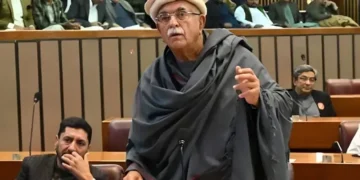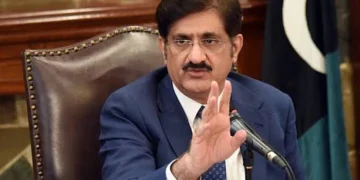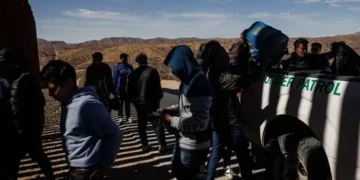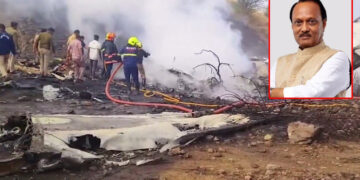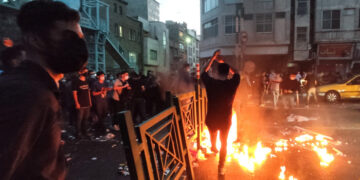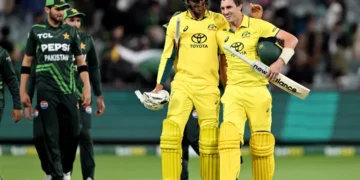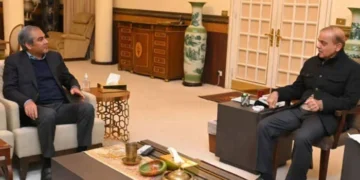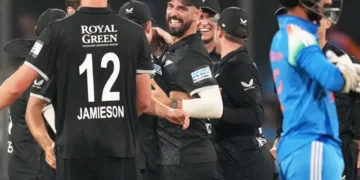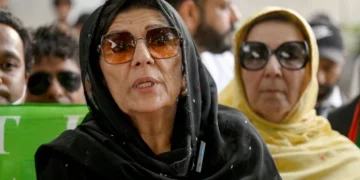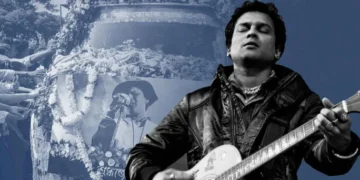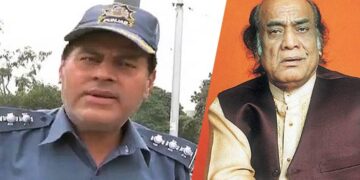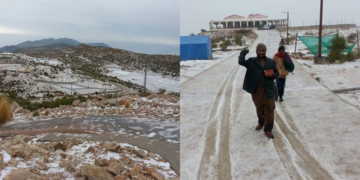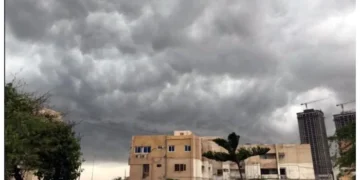During the hearing of the military court case in the Supreme Court, Justice Jamal Khan Mandokhel remarked that the Army Act applies only to the military. He further stated that we will consider whether military officers receive fundamental rights and justice.
The seven-member constitutional bench, headed by Justice Aminuddin Khan, is hearing the case. The arguments of the Ministry of Defence’s lawyer, Khawaja Haris, are ongoing.
The seven-member constitutional bench includes Justice Jamal Khan Mandokhel, Justice Muhammad Ali Mazhar, Justice Hassan Azhar Rizvi, Justice Musarrat Hilali, Justice Naeem Akhtar Afghan, and Justice Shahid Bilal Hassan.
Justice Jamal Mandokhel asked to be satisfied with the procedure of trials in military courts.
Justice Musarrat Hilali remarked that the officer who conducts the trial in court does not announce the verdict himself; he sends the case to a senior officer, who then announces the decision. How can an officer who has not heard the trial give a verdict?
Justice Jamal Mandokhel stated that he has been in this field for 34 years but still does not consider himself fully qualified. Does an army officer have enough experience and authority to pronounce a death sentence?
Khawaja Haris, the lawyer, said he would explain the military trial procedure in detail during the second part of his arguments.
Justice Jamal Mandokhel remarked again that the Army Act applies only to the military, and we will consider whether military officers receive fundamental rights and justice.
Justice Musarrat Hilali asked for clarification on who writes the verdict in a military court. Based on her information, the case is heard by someone else, and the commanding officer makes the decision on punishment. How can someone who did not hear the case make a decision?
The Ministry of Defence lawyer stated that the support of the JAG branch is used to write the verdict.
Justice Musarrat Hilali asked Khawaja Haris whether he had provided an example of military trials in the U.S. and questioned who the judge is in such cases in other countries.
Justice Muhammad Ali Mazhar added that officers sit in court-martial trials all over the world. Khawaja Haris responded that the officers who sit in court-martial have experience in trials. Justice Muhammad Ali Mazhar asked whether these officers also have legal expertise.
Justice Musarrat Hilali remarked that if allowed, she would ask a question herself. She referred to an incident where an army chief’s aircraft was ordered to leave the country after the airport lights were turned off, putting all passengers at risk.
Khawaja Haris responded by saying that someone not on the plane could not hijack it.
Justice Musarrat Hilali pointed out that there was still some fuel left in the plane, but it was still risky. Khawaja Haris stated that he would not discuss political matters but mentioned that the Supreme Court had reviewed the incident later and confirmed that there was sufficient fuel left on the plane.
Justice Musarrat Hilali remarked that this single incident led to the imposition of martial law, but even after martial law, the trial did not proceed in a military court.
Khawaja Haris explained that hijacking is not a crime listed under the Army Act, which is why it could not be tried in a military court.
Justice Aminuddin Khan remarked that the distinction on this point is now clear, and they should move forward. Justice Musarrat Hilali raised another question regarding the trial of the hijacking of a military or warplane. She asked where such a case would be tried.
Additional Attorney General Amir Rahman stated that in the May 9 incidents, there were nearly 5,000 suspects, out of which 105 were taken to military courts. Solid evidence of their presence at the scene of the crime exists.
Khawaja Haris argued that the Army Act applies only to individuals who violate the Official Secrets Act, and not every terrorist falls under its scope.
Justice Musarrat Hilali inquired whether the military courts conducted trials based on the same FIRs filed in police stations. How can a military court proceed with cases under the Pakistan Penal Code (PPC) or the ATA?
Khawaja Haris explained that additional sections could be added after an investigation.
Justice Muhammad Ali Mazhar asked whether a police investigation was relied upon, to which Khawaja Haris explained that military investigations follow a different system when the accused is in military custody.
The Additional Attorney General said that only three cases were presented before the court, but there were a total of 35 FIRs for May 9 incidents and 5,000 suspects. Military courts would only try the 105 individuals whose presence at the scene was proven.
The Supreme Court’s constitutional bench adjourned the hearing of the military court case until Monday.








